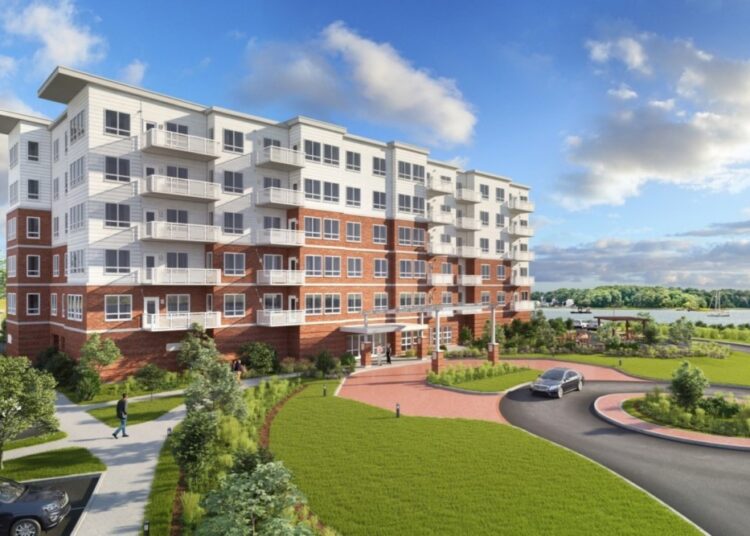It is always challenging to develop a project of any kind. As the nature of these projects dictates, all construction projects require specific skill sets and an in-depth understanding of the client’s expectations.
A multifamily development project presents unique challenges, even more so when significant. Successfully navigating multifamily developments takes teams of experienced individuals and nimble workers like engineering, design, owner, or general contractor.
Choosing multi family renovation contractors is crucial to construct or renovate multifamily housing. As a developer or an investor in a development project, it’s essential to understand the role of contractors and just as important as choosing a qualified and competent contractor that will do the job correctly.
General Contractor’s Role in Multifamily Construction and Commercial Construction
Commercial and multi family renovation contractors handle nearly all steps of the building process, just as general contractors do for single-family houses. Their services typically include:
- Layout:The general contractor’s responsibility is to work closely with a project’s architect to suggest changes and improvements that will save time and money, reduce risks, and enhance safety.
- Licensing:A general contractor typically must get all necessary city and county permits before beginning a construction or rehabilitation project.
- Buying supplies: General contractors will typically purchase most building materials directly from suppliers.
- Building/Zoning codes:Zoning laws and building codes play a critical role in the planning and designing of a building. The contractor must also ensure the following and execution of those codes during construction.
How to Choose a Quality Multifamily General Contractor
A multifamily development project requires extensive research before choosing a general contractor. Besides searching online, a developer or investor might speak to other developers regarding recommendations or perhaps locate properties they like locally. And then examine city or county records for information about the contractors who worked on these properties.
The borrower may also inquire about the general contractors the lender recommends if using construction financing. To choose quality multi-family renovation contractors, it would be best to:
- Begin early: Nine months or more can take a municipality to approve large multifamily development projects.
- Write a detailed description of the project:A clear project description is essential for a general contractor to provide an accurate cost estimate and schedule.
- Get bids from multiple contractors: Contractors should typically submit at least three competitive proposals for smaller projects.
- Examining references: Investing in or developing property requires you to check references carefully. Ask the contractor for references if they haven’t provided them. If they are unwilling to offer them, it will help find someone else.
- Identify potential pitfalls:General contractors who accept only cash, refuse to get permits, or do not have a history of completing successful projects may also show trouble.
- Communication: A general contractor’s ability to communicate effectively is one of the essential traits, and choosing one who suits your style is vital.
Preparing Your Request for Proposal (RFP) for a General Contractor
You should prepare a request for proposals (RFP) to send to general contractors you wish to submit bids for your multifamily construction project once you have identified general contractors you believe would be well suited.
Upon submitting your RFP, include specific details about the project, such as its scope, budget, schedule, and any other information you wish contractors to consider when submitting their bids.
Also, it is essential to differentiate between requirements and wants when writing up your project; bidders need to know which aspects of the project are critical and desirable if they are feasible within the budget, timeline, and capabilities of the project the contractor.
Effective bidding requires a specific request for proposals. Using it, the contractors can determine whether they are up for a project of your size or will be available within the timeframe you specify. It keeps you from wasting time with contractors who have no chance of handling your project. It allows you to compare the bidding processes more efficiently since the bids will be similar.
Excellent RFPs should include the following:
- A clear description of the project, separating wants from needs and providing as much information as possible
- The timeline
- Budget in general
- Specific specifications you need, such as payment specifications or materials requirements
- The specific information you want contractors to mention in their bids
Cost and Budget Analysis When Choosing a General Contractor
Choosing multi-family renovation contractors within your budget is essential to your success. The two types of expenses that most commonly occur are hard and soft costs.
Hard costs pertain to materials and physical labor, whereas soft costs involve design consultations and permits. It is also necessary to account for the costs associated with pre-construction, including the soft fees described above and other contractor costs, such as budgeting, due diligence, feasibility analysis, and meeting costs.
Conclusion
To summarize, choosing the ideal general contractor for multifamily construction may make or break an otherwise successful venture. Putting these items into practice will drastically improve the outcome of your construction endeavors.





